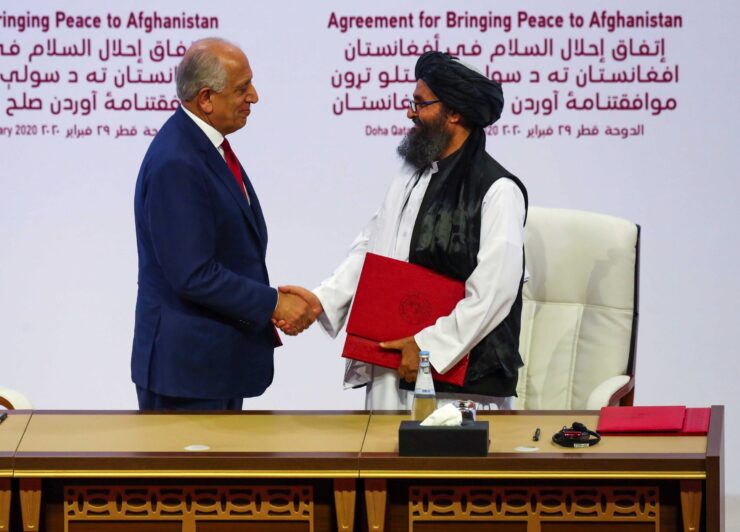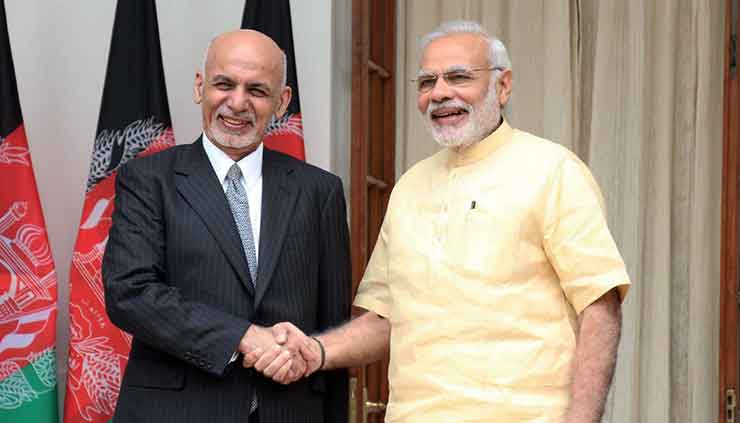
There is much in the news about US including India in the multilateral dialogue on Afghanistan while Russia kept India out of it. This rhetoric will heighten with the dialogue on peaceful settlement in Afghanistan held on March 18, 2021 at Moscow’s President Hotel between representatives of Russia, China, Pakistan, the United States, Qatar, Afghanistan and the Taliban. The insinuation of Russia keeping India out is by those on Beijing’s payroll; recruited as part of China’s influence operations.
By making statements that India has become redundant to organisations like the Russia-led Shanghai Corporation Organisation (SCO), China wants to drive a wedge between India-Russia relations. Moreover, behind the subtlety of scribes saying usefulness of India and Russia to each other is diminished, is Beijing’s signature. A second category of authors is those who simply want to please Washington, which too may increase with Joe Biden naming Putin a “killer”. Notably, the US never thought of including India in the dialogue on Afghanistan while it was steering the Quadrilateral Coordination Group (QCG) comprising Afghanistan, China, Pakistan and the US all these years. Is India being included now because as someone says America finds itself in a terrible mess in Afghanistan? But before pointing a finger at Moscow, we need to introspect our own foreign policy or rather lack of it.
We do have short memories but should recall that when Russia invited India to participate in the ‘Moscow Format’ during November 2018 that included a high-level delegation of Taliban, a delegation of Afghanistan’s High Peace Council, and representatives from 12 countries, India decided to only participate at the “non official” level; sending two retired diplomats (a former envoy to Kabul and a former high commissioner to Pakistan) to participate. Russia welcomed Indian participation in the dialogue on November 9 and said, “We highly appreciate Indian support in the peace process in Afghanistan and welcome Indian readiness and that of other partner countries in the Moscow format.” If logic was India would participate only when Afghanistan’s government was also represented, then by participating unofficially what message were we conveying to Russia? So, why should Russia include us in every dialogue if we are not keen?
In signing the so-called peace deal with the Taliban on February 29, 2020, the Trump administration gave Taliban a free hand to attack Afghan security forces and de-stabilize the country further. This is more than evident from the figures of mounting mayhem post inking the US-Taliban deal. Closure of US bases helped the Taliban increase their areas of influence, infiltrate populated areas, taking control of key highways and conduct operations to choke off Afghan towns and cities. Additionally, Afghanistan’s Special Forces are finding it difficult to checkmate Taliban advances because of decreased air support and shortage of advanced technology slowing their ground operations.
Now the missive by the Biden administration, conveyed to President Ashraf Ghani of Afghanistan through a letter by US Secretary of State Antony Blinken in first week March 2021, has outlined four ways to move matters more fundamentally and quickly toward peace: ministerial-level talks amid Russia, China, Pakistan, Iran, India and the US to discuss a unified approach: a senior-level meeting between the Taliban and the Afghan government hosted by Turkey in coming weeks; proposal to implement a 90-day reduction in violence intended to prevent a spring offensive by Taliban, and President Ghani to consider US proposals for a roadmap toward a new Afghan government.
Blinken has proposed ministerial-level talks among only Russia, China, Pakistan, Iran, India and the US. But should this dialogue not also include ministers from Turkmenistan, Uzbekistan and Tajikistan, all of whom share borders with Afghanistan and who are directly affected by the instability in that country? Is it Russian influence in Central Asia that has led to their exclusion by the US? Also, it is noticeable that the US is proposing Intra-Afghan dialogue in Turkey instead of Doha in Qatar where they have always been held. Is it the changing dynamics of the region that Russia included Qatar for the dialogue on March 18 at Moscow and the US proposes intra-Afghan dialogue in Turkey ruled by the rabidly radicalised Recep Erdogen who is already waging sub-conventional war on India in concert with Pakistan? Possibly, the US has proposed Turkey as the venue on behest of China and Pakistan who see a larger role for Turkey in Afghanistan post US troop withdrawal. Russia too would like Turkish forces in Afghanistan, with growing Russia-Turkey relations.

“Reduction in violence” is an ambiguous term whether to prevent a spring offensive by Taliban or otherwise. Seven to ten days reduction in violence has been tried out in the past with little success. Taliban influence is on the rise and they would certainly want to embarrass Washington. Whether Taliban would agree to this and in what measure only time will show, even as efforts appear to be on to get Taliban into the government ‘through the backdoor’. President Ghani has said time and again that he is ready for Taliban to join government through elections. However, the US wants to impose an ‘interim government’ in Afghanistan without elections – so much for the American claim of being champions of democracy.
There is speculation that 50 per cent representation in the proposed ‘interim government’ in Afghanistan would be of the Taliban. This may have adverse repercussions, eventually ending up in a Taliban-ruled Afghanistan. Obviously, no lessons have been learnt from Iraq where after the US invasion a 100 per cent Shia government was imposed that destabilised the country and saw the rise of the Islamic State. But for the US which has been looking at every opportunity to cut and run from Afghanistan, there may be little concern for what happens afterwards.
Beijing’s influence in Afghanistan is all pervasive. China is the only country in the world drilling commercial oil and mining copper in Afghanistan since 2012. It eyes the US$1-2 trillion mineral reserves in Afghanistan including large reserves of Lithium that are important for electric vehicles. China is helping Afghanistan set up a Brigade-level base in Badakshan region of Afghanistan. It has prevailed on Afghanistan to extradite Uyghurs from Afghanistan and even Chinese nationals without punishment who were recently caught in Afghanistan. Pakistan has been promoting Turkey as leader of the Islamic Ummah instead of Saudi Arabia on Beijing’s behest. Chinese President Xi Jinping as 21st Century Hitler and Recep Erdogan perceiving himself as Caliph of a resurrected Ottoman Empire are a perfect match, with Pakistan sitting in Beijing’s lap.
Successive US administrations have failed to acknowledge that Pakistan backed by China is the problem in Afghanistan, not the solution. If the US thinks, its withdrawal from Afghanistan will be in its strategic interests and will keep US mainland and its assets abroad safe, it is one big strategic miscalculation. Exiting Afghanistan will invite another round of foreign influence in these lands, particularly China and Russia – more powerful and adverse to American interests. Former Afghan President Hamid Karzai before relinquishing his office had said that peace in Afghanistan is only possible if the US and Pakistan want it. Moreover, the Taliban leadership is Pakistan by Taliban’s own admission. India needs to retain its strategic autonomy and tread with caution.
-The writer is a veteran of Indian Army. Views expressed are personal and do not necessarily reflect the views of Raksha Anirveda.








